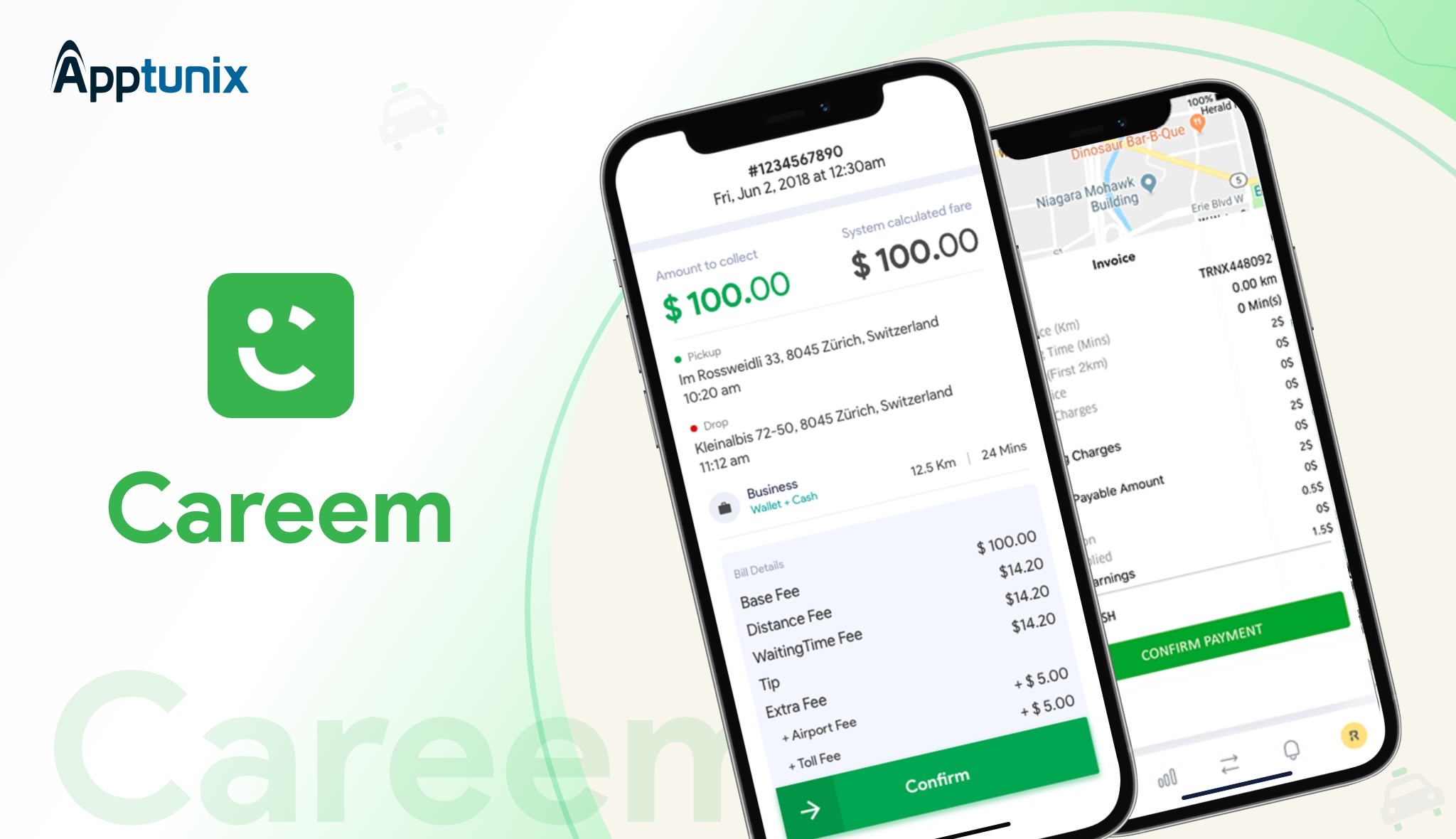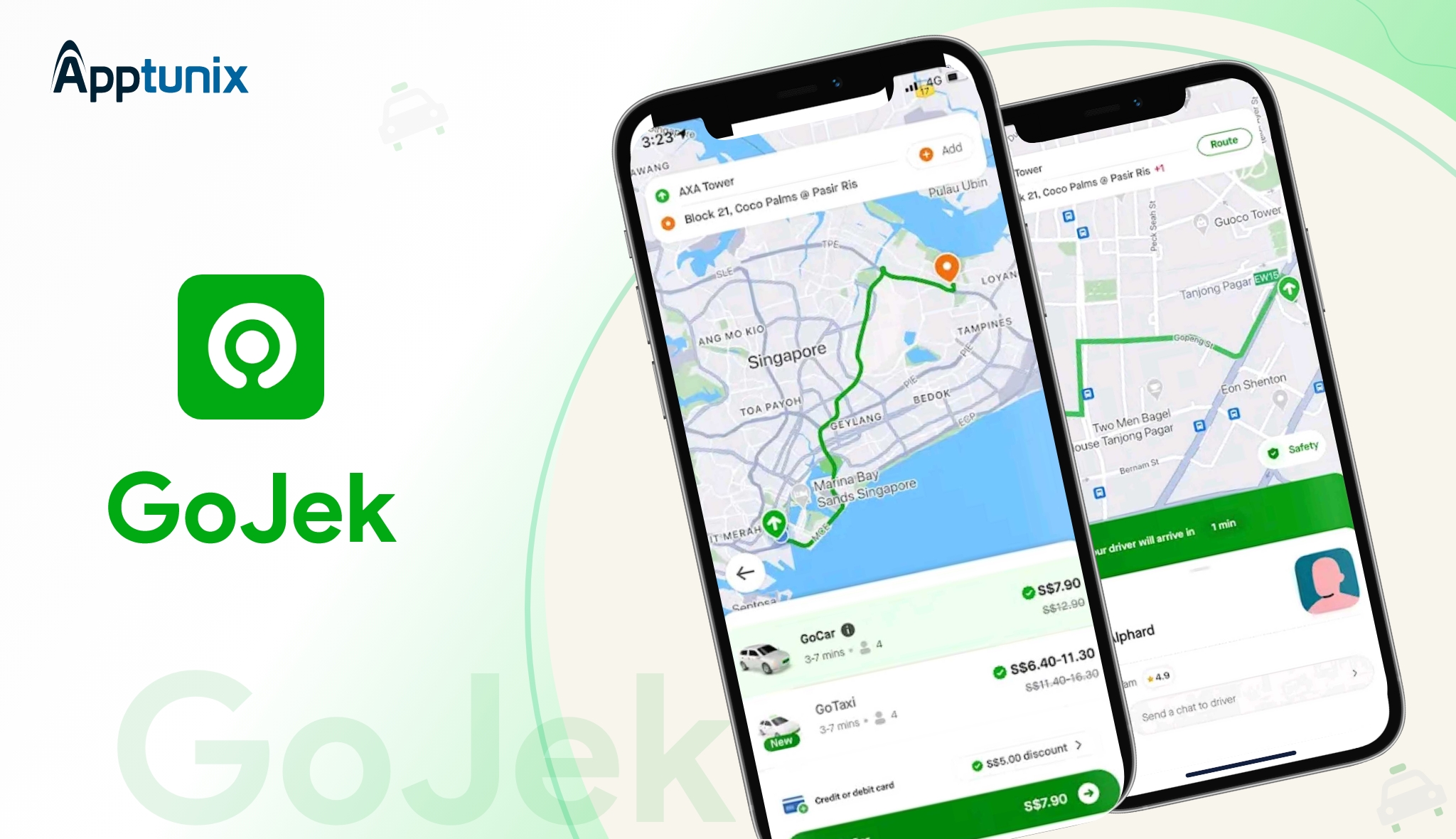Don't miss the chance to work with top 1% of developers.
Sign Up Now and Get FREE CTO-level Consultation.
Confused about your business model?
Request a FREE Business Plan.
5 Best Taxi Apps from Around the World and What You Can Learn from Them

A few years ago, you had to call a transportation company if you wanted to move from one location to another via a cab and wait for countless hours to get a quote. If you needed to travel on an urgent basis, you were required to rush on the roads and see if there was a cab available. In both cases, the waiting time was often unpredictable and the cost was high.
However, the scenario changed with the arrival of apps of Uber And Lyft in early 2010. These organizations turned the transportation industry upside down. Today, if you want to book a cab, you do not need to make calls and wait for hours as the order for the ride can be placed directly from your smartphone.
It was an industry disruption and it is a big one.
After the arrival of Uber, we saw the On-Demand Economy booming and now there is an Uber-like app for everything that we can imagine. Over time, some other Uber-like transportation apps started making their entrance into the market. And, guess what? They also reached the pinnacle of success while competing with ride-sharing giant Uber.
It shows how big the industry is and the scope of ride-sharing businesses around the world. Many players entered the market after Uber with their own USPs and business models. They targeted a specific market with customized features for a specific client base and got success.
Thus, if you are also a budding entrepreneur or owner of a taxi business planning to invest in mobile app development, this guide is for you. Before you compete with the ride-sharing giants, you need to learn from them and build a strategy to prepare yourself for the competition. So, in this blog, you will get to learn some of the best lessons from leaders in the ride-sharing industry that will help you build your own venture.
Having built thousands of Uber-like apps and solutions for taxi businesses around the globe, Apptunix, a leading taxi app development company, can help you take your taxi app idea or Gojek clone off the ground. However, first, you need to do some homework to get ready for the big race. So, read on.
Top Lessons You Should Learn from Best Taxi and Ridesharing Apps of 2022
Let’s walk through some of the interesting lessons that top taxi apps and startups taught the world:
1. Uber: The Market Leader in the Taxi Industry

Uber is so popular in the whole wide world that it has become synonymous with the on-demand economy. Uberization is a popular term used by many big publications and entrepreneurs to describe the on-demand model. But, how does Uber work? And, most importantly, what lessons has it taught the world? Many!
It is a US-based ride-sharing application with more than 110 million customers globally. The company doesn’t own even a single taxi but it is the world’s most renowned taxi application because of its solid business and revenue model.
Here is what you should learn from Uber’s success story:
The greatest ideas are simplest: To build a successful business, you do not need to study or understand rocket science. Just figure out the problems people are facing in their real life and develop a solution that solves them seamlessly. Having the first-mover advantage, Uber gained traction by solving one of the biggest problems of its time and the company never looked back.
Start from a point and go all over the places: Uber was first launched as a luxury car service that allowed people to move with style. At that time, the demand for limos and other expensive cars in the US market was at its peak and Uber capitalized on this opportunity. The brand learned about the sentiments of the demographic it was serving and built a business.
After some time, the brand expanded its offering by launching UberX, a less expensive hybrid car and an alternative to the luxury black car service. The lesson to learn here is to know the demand by serving a particular demographic first. Once one group of target audience becomes loyal to your brand, you can expand your offerings to the world.
There are several other lessons that you can learn from a brand like Uber – the #1 taxi app in the world. Because it is not possible to cover every one of the points here, check out this Uber-only guide to know What You Can Learn from Uber’s Success.

2. Lyft: Your Friend with a Car
After Uber, Lyft is the second largest ride-sharing app in the market, controlling more than one-third of the US market share. Based in San Francisco, Lyft is an application that operates only in the USA and Canada but is still a big name around the world.
The reason? It has a very unique selling point. While Uber brands itself as “Your Personal Driver,” people know Lyft as “Your Friend With a Car.” Lyft’s business model is developed around peer-to-peer ride-hailing services.

Here is what you should learn from Lyft’s success story:
Give equal importance to all your stakeholders: While Uber follows a rider-centric approach to business, Lyft is known for believing in equality. It maintains a driver-centric approach by providing tipping in the final cost. The key takeaway here is that you must maintain a balance between riders and drivers while building a taxi app. If riders have the leverage to show up a few minutes later, make the driver’s job easy by providing them with features like heat maps.
Focus on community building: Lyft always focused on building a strong community. It works to build an employee-centric culture that fosters human-to-human connection and provides a friendly experience. The app aims to focus on creating a friendly culture between drivers and riders. Leading with the title “Your Friend With a Car” may seem normal. But, there is a deep strategy behind this approach.
It helps the app create a connection between riders and drivers. Before the pandemic, it was customary for Lyft riders to sit in the front seat and Lyft’s drivers are even known to chat more than Uber’s drivers. As a result, the app seems to have a loyal consumer base and some even believe that Lyft’s market share will be more one day than Uber’s in the US market.
3. Bolt or Taxify

Founded by a 19-year-old in Estonia, Bolt is another application that is worth studying to get success in the online taxi industry. Nine years after its launch, the app is now available in more than 35 countries with an $11 Billion strong business.
The founder and CEO of Bolt said in one of his interviews with Techcrunch that his app entered the market to fix the issues of poor service and high prices. He believes that these problems have arisen due to the monopoly of taxi apps in the market.
Here is what you should learn from Bolt’s success story:
Choose your target market wisely: Bolt’s CEO believes that starting a business should start with choosing the right market. In an interview, he said that when he founded Bolt, a lot of companies and investors were ignoring markets like Africa and Central Europe due to their small size. However, with the passage of time and accelerated smartphone growth, these markets became large overnight.
That means, the market’s growth potential should always be your consideration before market size. He also says that he is glad they capitalized on the opportunities overlooked by big tech giants like Uber.
Price is the king: No matter how amazing your services are if they aren’t priced well, nothing will work. Bolt charges almost half of what its competitors charge for a ride. Bolt drivers also earn more than other app drivers because the app takes less commission.
Meet local needs: A taxi business is a business where you can not win without winning the local market. Bolt’s CEO said that when they launched their services in African markets, Uber was already there but they accepted credit cards only. It made no sense as over 95% of Africans were not having credit cards back then. On the contrary, Bolt localized its product and won over Uber in the local market. That’s how the app got traction in most parts of the world.
4. Careem: The Best Taxi App in the Middle East

Careem’s journey to success was not easy. The company started from a small call center in Dubai in 2012 and was acquired by Uber in 2019 for $3.1 Billion. Its huge success served as a blueprint for budding entrepreneurial talent in the Middle East as everybody learned valuable lessons from its growth.
Being a leading transportation company in Dubai, Careem now operates in more than 100 cities in over 10 countries in the Middle East, South Asia, and Africa.
Here is what you should learn from Careem’s success story:
Product localization is the key: Careem is an app that offers services just like Uber but it was specifically developed for the Middle East market. Because people in this region are less tech-savvy than people in the USA or UK, the company adopted every way to help them and provided them with what they needed to enjoy the services of Careem.
For example, when the app was launched, they built an entire call center to help people solve their queries and make it easy for them to book a cab. Once the company scaled, the shifted the call center from Dubai to low-cost areas like Saudi Arabia and Egypt.
Also, the company knew that they are targeting an Islamic region and some of the people do not prefer credit cards in the area as interest is not considered good in Islam. So, they started accepting cash from riders and their bookings surged right after the app was launched.
Do not just copy other apps: While Careem was based on the idea of Uber, they didn’t just make an Uber Clone and that is the reason the app is today a massive success. Google Maps in the Middle East were not as accurate as in the USA at that time because of frequent construction going on.
Thus, they built their own databases of location so that riders could select the pickup or drop location from a dropdown and it becomes easy for drivers to complete the trip. This is just one example of how Careem is not a copy of Uber and has its own USP.
Also Read: Why Hailo – an On-Demand Taxi App with $100 Million in Funding Failed in the US
5. GoJek: Not Just a Taxi Application

Available in 5 countries, GoJek is a ride-sharing platform that provides many services to customers. From connecting riders with drivers to delivering food, and helping users move heavy items – the app does it all to make its users’ life easier and employees’ life profitable.
Here is what you should learn from GoJek’s success story:
Have a local approach while investing in expansion: Gojek is an Indonesian company and it is deeply embedded into its market. While it is good for its local growth, the company understands that international expansion demands something else. Thus, it carefully planned the expansion and is successful so far.
For its new business in Thailand and Vietnam, the organization left the decision of using the parent company name on their local teams. They chose the name Get in Thailand and Go-Viet in Vietnam. The company allowed their local team to design the business model as per local needs and ensured that they will always have mentorship that only a leader like GoJek can provide.
Provide your driver flexibility and freedom to earn more: Every individual looks for flexibility in a job and if that comes with more earnings, it is a win-win. Thus, to win in any business, you need to make sure your employees are happy. GoJek provides a platform that individual operators and entrepreneurs can utilize to reach new customers, create new skills, and increase earnings.
The platform doesn’t limit drivers to just move people from one place to another. They are allowed to deliver food during lunch hours. Or, if there are fewer requests, they can choose to deliver parcels. This way, drivers have a number of options to earn money and increase profitability.
Wrapping Up
The world loves innovative startups that solve real-world problems. And, when it comes to taxi apps, it is the favorite niche of entrepreneurs around the world because of the countless monetization options that it provides. If you are also interested in learning how to build a taxi app or any kind of transportation app like GoJek Clone app development for your business, you can start by talking to taxi app development experts at Apptunix.

Rate this article!
(3 ratings, average: 3.00 out of 5)
Join 60,000+ Subscribers
Get the weekly updates on the newest brand stories, business models and technology right in your inbox.

Nikhil Bansal is the Founder and CEO of Apptunix, a leading Software Development Company helping startups as well as brands in streamlining their business processes with intuitive and powerful mobile apps. After working in the iOS app development industry for more than 10 years, he is now well-equipped with excellent problem-solving and decision-making techniques.

Telemedicine 2.0 - A Comprehensive Guide On What Healthcare Providers Need To Know?
Discover how the latest advancements like Artificial Intelligence in telemedicine are reshaping patient care. This comprehensive resource offers insights into the key trends and innovations driving this shift, providing valuable knowledge for healthcare professionals looking to stay ahead.
Download Now!Subscribe to Unlock
Exclusive Business
Insights!
And we will send you a FREE eBook on 'Mastering Business Intelligence.


















